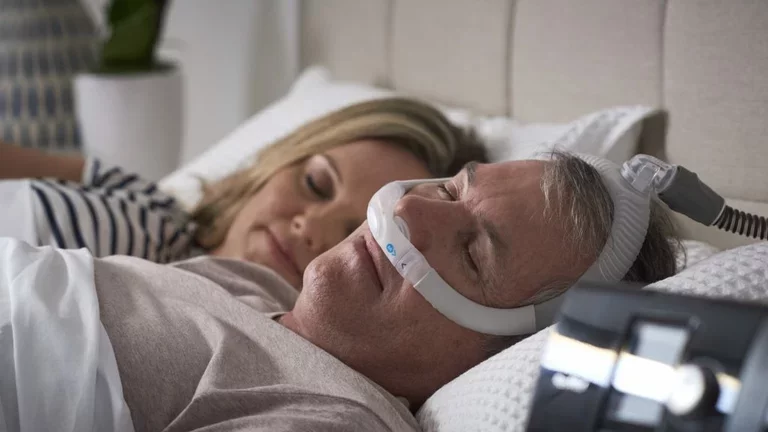Sleep Apnea Symptoms
What are the common sleep apnea symptoms?
5.4 million Canadians suffer from sleep apnea, but only 1 in 4 have been diagnosed. Common symptoms such as snoring, fatigue, and associated conditions can be strong indications that you have sleep apnea.
If you are experiencing 2 or more of these common sleep apnea symptoms, it may be a sign that you can have sleep apnea:
- Snoring
- Fatigue throughout the day – sometimes falling asleep while driving or at work
- Breathing pauses (apneas)
- Gasping for air at night
- Poor concentration
- Feeling depressed, irritable or moody 4,5
- Reduced sex drive
- Waking up often to use the bathroom at night
- Nightmares
Factors which may contribute to sleep apnea
Anyone can develop sleep apnea regardless of age, gender or body type. However, some factors are may put at increased risk: 10
Age: Sleep apnea is more prevalent in adults older than 50.
Gender: Sleep apnea is more common in men than in women. This has been attributed to differences in anatomical and functional properties of the upper airway.
Weight: Excess weight increases the risk of having sleep apnea. A BMI (Body Mass Index) of 30 or higher is considered to be obese.
Genetics: People who naturally have narrow airways can be more at risk of developing sleep apnea.
Smoking and alcohol: These may compromise muscle activity and increase the risk of snoring or airway obstruction.
Snoring and Sleep Apnea
Snoring occurs during sleep, when your throat muscles become so relaxed that they can no longer support the airway to stay fully open. As the airway collapses, each breath of air causes the lining tissue to vibrate and make loud snoring sounds.
Some mild snoring can be harmless, and often treated with over-the-counter products like ones which improve your sleep positioning. But when your snoring is loud and accompanied by breathing pauses called apneas – which are periods when you stop breathing and then gasp for air – it can be a sign of sleep apnea.
Apneas can last up to a minute in severe cases and prevent your body from getting enough oxygen. Then your carbon dioxide blood levels rise, signalling to your brain to wake up briefly (and unconsciously), tense your throat muscles and gasp for air.
Sleep apnea interrupts your sleep cycle and can cause you to wake up exhausted, irritable, and foggy
If your snoring is accompanied by apneas and is the result of obstructive sleep apnea, it can almost always be eliminated with sleep apnea treatment.
Is sleep apnea dangerous?
If it is not treated properly, sleep apnea can become more complicated over time and potentially lead to other health conditions.
However, by treating your sleep apnea proactively you may be able to reduce or eliminate the risks of these long-term health conditions, such as:

